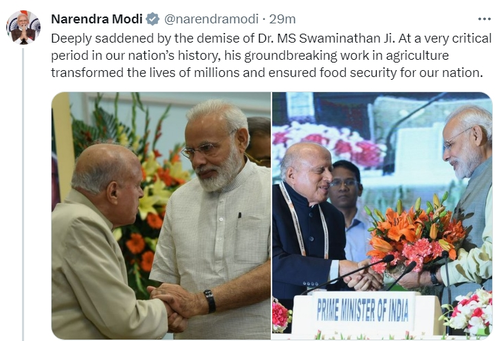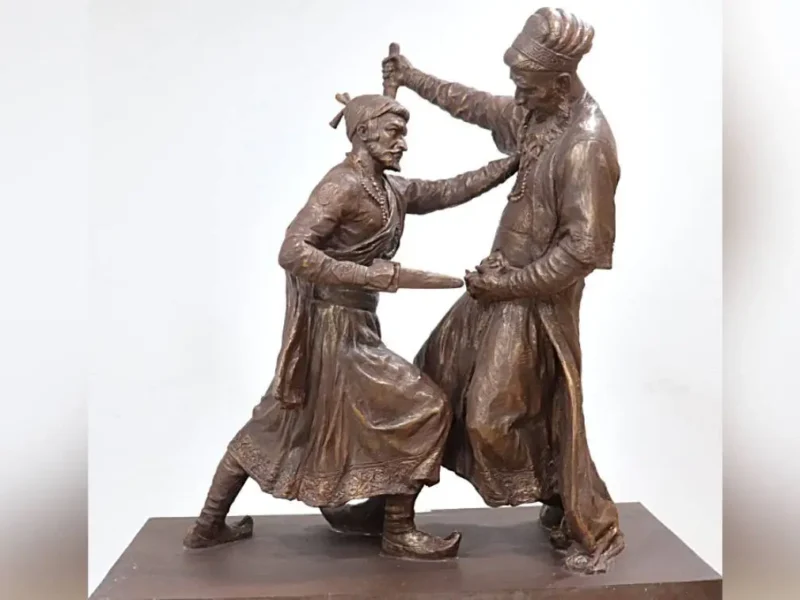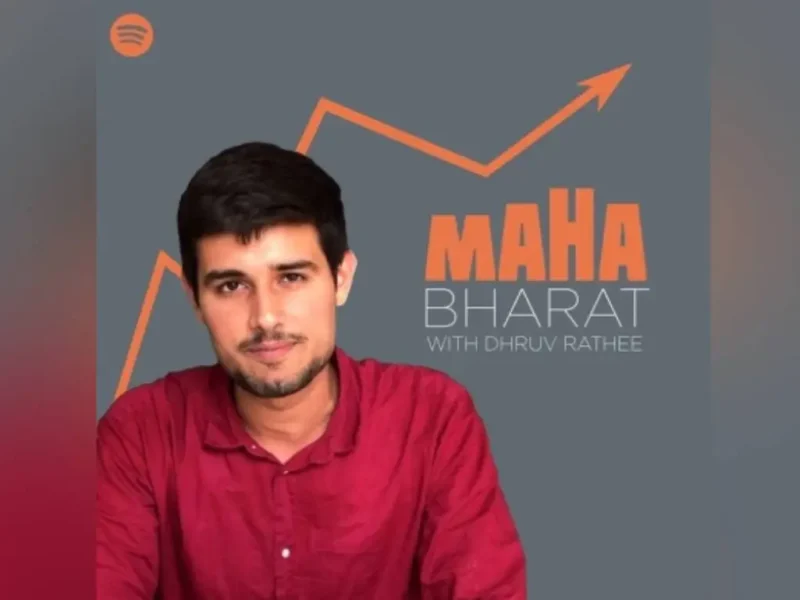
Father Of India’s Green Revolution, M.S.Swaminathan Passes Away
NEW DELHI (ANI) – M.S Swaminathan is no more. The nature of world politics and food crises and issues therein has changed over the decades.
Swaminathan died at the age of 98 in Chennai on September 28. Born on August 7, 1925 in Tamil Nadu’s Thanjavur district, he was an agronomist, agricultural scientist, plant geneticist, administrator, and humanitarian who played a crucial role in developing high-yielding varieties of paddy that helped ensure India’s low-income farmers produce more yield.
Condolences, led by Prime Minister Narendra Modi have poured in.
Essentially Swaminathan was a compassionate man concerned about hunger and like his mentor, guide and associate Norman Borlaug; Swaminathan also believed that “the battle to ensure food security for hundreds of millions of miserably poor people is far from won.”
Around the year 2000, along with Dr Borlaug, Swaminathan was still in agony that “the world’s population who felt hunger between 1960 and 2000 had fallen from about 60 percent to 14 percent.”
The agri-scientist and hailed as the ‘Father of the Green Revolution’ in India knew that the figure translated into 850 million men, women and children.
In the 1960s, Dr Swaminathan worked with Dr Norman Borlaug, and other experts to produce HYV Wheat seeds.
He started teaching small-scale farmers how genetically engineered grains might enable them to grow higher yields. These demonstrations were game-changing since the crop tripled prior output levels in the first year of the green revolution era. Because of his efforts, it is said the average agricultural production increased from 12 million tonnes to 23 million tonnes in just four crop seasons.
Swaminathan worked closely with Prime Minister Indira Gandhi to develop agricultural programs and policies that would assist the country in remaining self-sufficient in agriculture.
He served as the Ministry of Agriculture’s Principal Secretary from 1979 to 1980. Between 1972 and 1979, he was the Director-General of the Indian Council of Agricultural Research and from 1980 to 1982 and served on the Planning Commission catering to agricultural and rural development.
The National Commission on Farmers, chaired by M S Swaminathan, submitted five reports through the period December 2004 – October 2006. Following from the first four, the final report focused on causes of famer distresses and the rise in farmer suicides, and recommended a holistic national policy for farmers.
The report of NCF pointed out that in 1961, the percentage of the workforce in agriculture was 75.9 per cent. While the number decreased to 59.9 per cent in 1999-2000. But agriculture still provided the ‘bulk of employment’ in the rural areas.
Therefore, it was suggested that overall employment strategy in India must seek to achieve two things. First, create productive employment opportunities and second to improve the ‘quality’ of employment in several sectors such that real wages rise through improved productivity.
The measures to do so included — accelerating the rate of growth of the economy and also laying enough emphasis on relatively more labor-intensive sectors, inducing a faster growth of these sectors; and Improving the functioning of the labor markets without eroding the core labor standards.
It was also recommended that there is a need for implementing a universal public distribution system.
Swaminathan pointed out that the total subsidy required for this would be only one percent of the Gross Domestic Product.
True, people like him should be hailed also as a humanist. Swaminathan had the conviction that there was no time to relax until hunger became history.
Revolutions are usually associated with the young; but in Punjab, from young college students to retired army men, small farmers and illiterate peasants would queue up to get the ‘new seeds’.
He was more than happy at the end of his life and career to see that at least in Punjab, the divorce between intellect and labor, the bane of Indian agri scene, was vanishing or already vanished.
Swaminathan and his expertise were in debate during the height of farmers’ protest vis-a-vis three reform bills that the Narendra Modi government later withdrew.
It may be stated that the Swaminathan Commission had recognized the problem of cartelization among traders in a particular Agricultural Produce & Livestock Market Committee (APMC) and thus recommended the establishment of One Nation-One Market.




